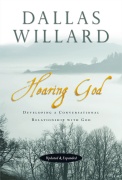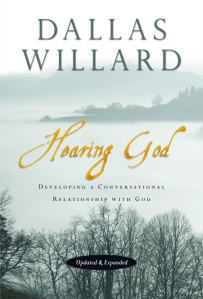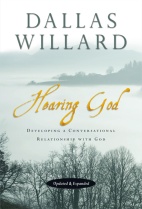 I’ve found myself deeply moved this week as I continue to hear about the many thousands of unaccompanied children coming to our borders. There aren’t easy solutions, but many of the reactions and solutions I’ve heard seem severely lacking in compassion. I keep wondering if there’s anything I can do – I’m still not sure. But one thing I do know that I can do is to pray. I ran across this prayer that I found helpful to put words to some of what I’ve been feeling.
I’ve found myself deeply moved this week as I continue to hear about the many thousands of unaccompanied children coming to our borders. There aren’t easy solutions, but many of the reactions and solutions I’ve heard seem severely lacking in compassion. I keep wondering if there’s anything I can do – I’m still not sure. But one thing I do know that I can do is to pray. I ran across this prayer that I found helpful to put words to some of what I’ve been feeling.
Hear our prayer, loving and compassionate God, and give us courage that we may accompany these migrant children with abundant mercy and grace. Embolden us to speak to the world of your love for all your children, and give us the courage to be unafraid. Free us from the fear of scarcity and the fear of the one whom we do not know. Through the power and presence of your Holy Spirit remind us that we are all your children, and allow us the blessing of experiencing the renewal of life that comes when we share your love with especially the littlest among us. Bring your healing among these unaccompanied migrant children. Bless their hearts with your loving presence, and surround them with your angels of care. Bless their parents and their families wherever they may be as they suffer the separation and the not knowing that comes with the migrant journey. Bless us to be the parents, family and friends of these children who now come to be among us, blessing us and bringing us your love. Amen.
(Source: http://www.calpacumc.org/wp-content/uploads/2014/07/Interfaith-Weekend-Resource-Packet.pdf)
 I’ve run across some interesting reviews and articles about Noah – in addition to some reviews that I think are misleading and unhelpful, and say more about the reviewer’s bias than the movie. Rather than flooding Facebook with the articles I’ve found helpful, I thought it might be better to put it all in one blog post – along with some thoughts of my own – for those who are interested.
I’ve run across some interesting reviews and articles about Noah – in addition to some reviews that I think are misleading and unhelpful, and say more about the reviewer’s bias than the movie. Rather than flooding Facebook with the articles I’ve found helpful, I thought it might be better to put it all in one blog post – along with some thoughts of my own – for those who are interested.
First, a few of my own thoughts. Cari and I did see the movie. We liked it. It is not a “literal” retelling of the story of Noah. If you go into the movie expecting it to follow the biblical account word-for-word, you’ll be disappointed or upset. Having said that, I do think the movie stays true to the themes found within the biblical version of the story, and it provokes thought about the meaning of the story, the reason God would choose to flood the earth, and the very real difficulty many face when trying to understand God and his voice. While there are imaginative and sometimes fantastical elements in the movie, I generally did not find that they detracted from the biblical story. I’d like to make some more specific comments about elements in the movie, but I’ll add a spoiler warning for those who are concerned about it:
- The most fantastic element of the movie is the Watchers, rock-like fallen angels who assist Noah in building the ark. They seem to be Aranofsky’s answer to the “nephilim” of Genesis 6:4. Since nobody seems to know who the nephilim are – some Christians believe they are giants, the offspring of angels and human women – I don’t see this as a big problem. Do I really believe that the nephilim were giant rock creatures? No. But does their presence harm the story of Noah as told in the movie? I don’t think so. Its also interesting to note that the Watchers are actually drawn from the Book of Enoch, which uses that name for the angels that fathered the nephilim. Very few Christians view the Book of Enoch as inspired, but some Jewish traditions do – which makes sense since Aranofsky’s religious background is Judaism. It’s helpful, I think, to realize that Aranofsky did not pull the concept of the Watchers out of thin air.
- The movie is an imaginative telling of the story of Noah in that it contains elements – dialogue and plot points – that are not from the biblical text. However, I challenge anyone to describe how they would make a movie based on the biblical text that was not an imaginative telling of the story. Noah does not say a single word in Genesis until after he is found drunk and passed out by his sons, after the flood. So unless the movie is going to be a silent movie – or Noah is a mute – some imagination will be required.
- I loved the theme that Aranofsky develops about Noah’s struggle to understand God’s voice. Big spoiler here: Noah believes that God wants to wipe humanity from the face of the earth – his family included – and he goes so far as to threaten to kill his own grandchildren to ensure that it happens. Some reviewers have taken this to mean that Aranofsky thinks God is a monster, and Noah ultimately decides not to listen to God. But I think that is a mistaken understanding of the movie. Noah struggles to understand what God is up to with the flood – this does not seem implausible to me. Wouldn’t most of us have some questions for God if he decided to kill every living thing on the earth but us? Ultimately, Noah chooses mercy over justice – and his struggle between those two themes is a central conflict in the movie. But I think the lesson of the movie is that God, too, chose mercy by saving Noah and his family.
- Aranofsky does a great job handling the episode of Noah’s drunkenness in Genesis 9. He connects it to Noah’s struggle to understand God, and his struggle with justice vs mercy. While this connection is not present in the biblical text, it is certainly plausible. Genesis is silent on why Noah got drunk – Aranofsky’s imaginative retelling of the story helps to suggest a possible reason.
Those are some of my thoughts about the movie. Now I’d like to make a few observations about the controversy that has surrounded the movie.
- I find it unfortunate that so many Christians are choosing to attack the movie without having seen it themselves. Choosing whether or not to see the movie is a personal decision, and one that should be respected. But making pronouncements about whether or not it is biblical, and whether people of faith should see it, based upon hearsay – often from people who haven’t even seen it themselves – is dangerous ground. We should not condemn from positions of ignorance.
- Some have criticized the movie for never mentioning God’s name. This strikes me as incredibly silly. God is repeatedly referred to as “the Creator” in the movie, which is a very biblical way of referring to God. In fact, Jesus himself refers to God as “the Creator” in Matthew 19:4. Why would Christians see this as a problem?
- Some have criticized the environmental concern that is present in the movie. An argument could probably be made that it is a little heavy-handed at times, though I did not think so. Regardless, this is a biblical theme – and one that makes sense as a point of discussion regarding this era of biblical history. In Genesis 1:28 – just five chapters before the story of Noah – God tells Adam and Eve to “fill the earth and subdue it.” And there have been competing interpretations of that phrase throughout history, exemplified in this movie by Noah and Tubal-Cain. Tubal-Cain sees the earth as a place to exercise what he calls “dominion” – which means taking whatever he wants to get ahead, regardless of the costs to environment or other life (animal or human). Noah sees his God-given role as a caretaker of a creation that God called good – which seems to me to be the biblical environmental ethic. So while that theme is not directly present in the four chapters of Genesis that tell Noah’s story, it is certainly present elsewhere in Genesis and can, I believe, be inferred in Noah’s story. At the least, its presence in the movie is not somehow anti-biblical.
- Finally, I think it is a shame that this movie has caused such controversy, because it is not nearly the hatchet job of the biblical story that some have made it out to be. In fact, I would suggest that Christians should be applauding a Hollywood movie that gives deep and respectful thought to a biblical story and what is being communicated within it. Christians complain when Hollywood doesn’t reflect our values – and then when they do, its still not good enough. This movie is exactly the kind of movie we should be encouraging – a serious and thoughtful interpretation of a biblical story.
As I said at the beginning of the post, I’ve found some great resources that are worth checking out. I’ll list them below, and add to them as I find others.
- A review from the National Catholic Review by Steven Greydanus (a very thoughtful Christian movie critic)
- A very interesting interview with Darren Aronofsky that shows he has clearly thought very deeply about the story of Noah and its themes.
- A fascinating review of the movie by an orthodox Jewish rabbi. It makes very clear – especially if you’ve seen the movie – just how much Aronofsky has drawn from Jewish midrashic tradition. And it makes many of the imaginative choices by Aronofsky much more understandable.
I’d love to hear your thoughts, especially if you’ve seen the movie. I only ask that any comments be respectful towards those who might disagree with you.
 In the final video session on Hearing God, Dallas Willard told the story of the Bible – from Genesis to Revelation – as the story of the “With-God Life.” Before we get to that, let’s first take a step back and say that it is important – for a variety of reasons – for us to have some understanding of the story of the Bible. Different people have different ways of summarizing the Bible’s story – most of them have great similarities, but sometimes emphasize a particular idea or focus over another. One way of summarizing the story comes from Scot McKnight in his (excellent) book The Blue Parakeet:
In the final video session on Hearing God, Dallas Willard told the story of the Bible – from Genesis to Revelation – as the story of the “With-God Life.” Before we get to that, let’s first take a step back and say that it is important – for a variety of reasons – for us to have some understanding of the story of the Bible. Different people have different ways of summarizing the Bible’s story – most of them have great similarities, but sometimes emphasize a particular idea or focus over another. One way of summarizing the story comes from Scot McKnight in his (excellent) book The Blue Parakeet:
- Created for Oneness (Genesis 1-2)
- Otherness Introduced (Genesis 3-11)
- Otherness Expands (Genesis 12-Malachi)
- Oneness in Christ (Matthew-Revelation 20)
- Perfectly One (Revelation 21-22)
Another even simpler way of telling the story of the Bible as a five-act play comes from N.T. Wright from his (also excellent) book Scripture and the Authority of God:
- Creation
- Fall
- Israel
- Jesus
- Church
A third way that I picked up somewhere modifies Wright’s five-act play slightly:
- Creation
- Fall
- Redemption
- Reconciliation
All of these ways of summarizing the story of the Bible have their strengths, and which one you choose really depends on what you are trying to emphasize. In this session, Willard does something different than what I’ve encountered before. He tells the story of the Bible as the story of the “With-God Life” – that is, as the story of how God interacts with humankind throughout history. I’ll summarize his approach:
- Adam & Eve – Prior to the fall, God walks with them in the garden
- Cain, Enoch, Noah – After the fall, the Bible shows God interacting with a few individuals
- Abraham & Israel – Beginning with the covenant in Genesis 12:1-3, God meets first with Abraham’s family, and then the nation of Israel
- Tabernacle & Solomon’s Temple – God’s shekinah glory settles on the Tabernacle and Temple. God lived in these structures in the presence of his people. (Exo 40:34-38; 2 Chron 7:1-3)
- Judges – God is present with the people through the Judges
- Monarchy – The people reject God but God does not reject them (1 Samuel 8:7).
- Exile – The Temple is destroyed in 587 B.C. and the people are taken into exile in Babylon. The Temple, the place where God lived, was destroyed – and the Israelites began to learn that God was still present with them, even in a foreign land.
- Jesus – The shekinah glory of God in person. The incarnation – God becomes man and lives among us.
- The Church – The continuing incarnation – God sends his spirit to live within his people. No longer does God live in the Temple – now God lives inside each one of us. We are the Temple (1 Cor 6:19-20).
Willard’s way of telling the story of the Bible shows the remarkable development of God’s interaction with humankind – from dwelling in the Temple, to dwelling among us (Jesus), to dwelling within us. The video session closes with Richard Foster observing that throughout the Bible, God continually says these words: I’m with you. I’m with you. I’m with you. And all along the question is asked…Are you willing to be with me? The With-God Life is available to each one of us – God desires a real, authentic relationship with us. He invites us into the kind of life where hearing God is a normal occurrence. Our first step is simply to answer that question: Are you willing to be with me?
 “Seek the Kingdom of God above all else, and live righteously, and he will give you everything you need.” (Matthew 6:33; NLT)
“Seek the Kingdom of God above all else, and live righteously, and he will give you everything you need.” (Matthew 6:33; NLT)
In the most recent session of Hearing God, Dallas Willard and John Ortberg discussed the importance of sleep to the kind of life in which we learn to hear God. But then the discussion turns to the Kingdom of God, and the passage quoted above. It is a well-known passage, but perhaps not discussed and unpacked quite as often as it should be. We know that we are supposed to seek the Kingdom of God – but what exactly does that mean? What does it look like?
To start with, we need to understand what Jesus is referring to when he speaks of the Kingdom of God – that way we’ll know what we are supposed to be seeking in the first place. Often when we think of the Kingdom of God, we think (rightly so) of heaven, Jesus’ second coming, and eternity – those things must be what Jesus is talking about, right? And they are – but this view of the Kingdom of God as a future reality misses something very important. Consider these words from Jesus:
“But if I am casting out demons by the Spirit of God, then the Kingdom of God has arrived among you.” (Matthew 12:28; NLT)
“The Kingdom of God has arrived among you.” It doesn’t sound very “future-ish,” does it? This passage (and others like it in the gospels) help us understand something very important about the Kingdom of God: it is not just a future reality. It is present right now. The Kingdom of God is a present reality – it is the reality in which God has his say. In the Lord’s Prayer, we pray “your kingdom come, your will be done, on earth as it is in heaven” (Matt 6:10) – we pray this prayer because we understand that heaven is the place where God’s will is always done. On earth, God has chosen to allow us free will, and Satan still has influence – but God is still at work, primarily (though not exclusively) through the Holy Spirit and through his people. You and I can be a part of the Kingdom of God right now – we are a part of the Kingdom of God every time we choose to live as if God is king.
So what does it mean to seek the Kingdom of God? Willard suggests that it simply means to seek what God is doing in the world. Seeking the Kingdom means that I am looking – actively looking, all the time, everywhere I can – to see where God is active in the world, and then considering how I can be a part of God’s work.
What does all this have to do with hearing God? We hear God within the context of a certain kind of life – a life lived in the Kingdom of God. As I seek to place myself more and more within God’s will, and seek his action in the world – striving to be a part of what he is doing – I am better able to hear when he is speaking to me. And the reverse is true as well. The more I learn to hear God when he speaks to me – by paying attention to the 3 factors that help us recognize his voice, and by experience – the easier it is for me to live within the Kingdom of God.
 The fifth session of the Hearing God DVD curriculum starts out a bit strangely. The topic of the session is Hearing God in the Context of the Kingdom of God (more on the Kingdom of God in my next post). It is about hearing God in the context of a certain kind of life – a life lived in the Kingdom of God. But the first 10 minutes of the video is about sleep, and the epidemic of sleeplessness in our society today.
The fifth session of the Hearing God DVD curriculum starts out a bit strangely. The topic of the session is Hearing God in the Context of the Kingdom of God (more on the Kingdom of God in my next post). It is about hearing God in the context of a certain kind of life – a life lived in the Kingdom of God. But the first 10 minutes of the video is about sleep, and the epidemic of sleeplessness in our society today.
At first glance this seems a bit odd – why spend so much time talking about sleep in a class about hearing God’s voice? In fact, after the first 10 minutes of the video I stop it and ask the class participants the same question. “Why is this discussion of sleep relevant to our topic of hearing God.” After a bit of discussion, most classes come up with two responses:
- First, it is relevant because the amount of rest we get influences everything we do in life. Sleep is a necessity for us – we are finite creatures and we need rest to function well. When we are not well-rested, everything gets harder – focusing at work, being civil to the people around us, our ability to process information, and so on. Sleep is necessary for virtually everything we do. And this is certainly true when it comes to hearing God as well. In Hearing God 6, we noted Willard’s belief that the primary way God seems to speak to us is the “still, small voice.” It is not always a booming voice that is impossible to miss. We have to pay attention. And paying attention requires us to be rested.
- Second, it is relevant because – as we stated above – hearing God happens best in the context of a certain kind of life. Life lived in the Kingdom of God – which means life lived as if God is king. It involves a recognition that God is in control (and I am not). Few things in life more clearly demonstrate our need to release control of our lives than sleep, when we spend approximately 1/3 of our day unconscious and unaware of what is happening around us. When I sleep, I have to trust that God is in control and will take care of me at my most vulnerable. Halfway through Psalm 121 we find this line: “He who watches over Israel will neither slumber nor sleep” (Psa 121:4). God does not sleep – so we can sleep.
During this session, Dallas Willard and John Ortberg have an interesting discussion of the times when we can’t sleep – when something is bothering us and just can’t seem to let go of it and rest. Willard makes an interesting and (I think) very astute observation – he says that “sometimes turning loose [letting go] means taking hold of something else.” Often we have difficulty “letting go” of a problem or a worry – we may want to do so, but we aren’t sure how. Willard rightly points out that in order to let go, we may have to grab onto something else. So, for example, when I am laying in bed turning a problem over and over in my mind, and unable to sleep because of it, it is helpful for me to try and “let go” of that problem by “taking hold” of God’s goodness. Instead of focusing on the problem, I have found it helpful to pray – first, to pray about the problem and attempt to release it to God, at least for the night. But then I try and thank God for the good things in my life – my wife and newborn daughter, a roof over our heads, a warm bed to sleep in, etc. Instead of focusing on the few things going wrong in my life, this helps me to see and focus on the many things going right. And it often helps to calm me and allow me to relax enough that I can sleep.
In my next post, we’ll talk about the Kingdom of God – what it is, what it means to seek after it, and what that has to do with hearing God.
 Dallas Willard suggests that there are 3 factors that help us to recognize God’s voice when he speaks to us: tone, spirit and content. Before elaborating on these three factors, I want to take a moment to note what Willard is, and is not, talking about when he speaks of hearing God’s “voice.” He is not talking about the audible voice of God – what we usually think of when we speak of someone’s voice. God can speak to us audibly if he so desires – there are a couple examples of him doing so in the Bible (1 Samuel 3 provides one of the better known examples; see also God’s interaction with Abraham in Genesis 22 when he is about to sacrifice his son, Isaac). Most of the time, however, when someone claims God spoke to them audibly, our reaction is to find them a good counselor! Sometimes this is due to our skepticism that God still speaks to us today in any form – and that skepticism should be resisted. But it is also a recognition that speaking in an audible voice does not seem to be God’s primary way of speaking to us.
Dallas Willard suggests that there are 3 factors that help us to recognize God’s voice when he speaks to us: tone, spirit and content. Before elaborating on these three factors, I want to take a moment to note what Willard is, and is not, talking about when he speaks of hearing God’s “voice.” He is not talking about the audible voice of God – what we usually think of when we speak of someone’s voice. God can speak to us audibly if he so desires – there are a couple examples of him doing so in the Bible (1 Samuel 3 provides one of the better known examples; see also God’s interaction with Abraham in Genesis 22 when he is about to sacrifice his son, Isaac). Most of the time, however, when someone claims God spoke to them audibly, our reaction is to find them a good counselor! Sometimes this is due to our skepticism that God still speaks to us today in any form – and that skepticism should be resisted. But it is also a recognition that speaking in an audible voice does not seem to be God’s primary way of speaking to us.
The Bible also speaks of the “still, small voice” of God (1 Kings 19:12). While recognizing that God can speak to us in a variety of ways, Willard suggests that the still, small voice of God should be seen as God’s primary and preferred method of communication with us. Near the beginning of the study, John Ortberg made an observation that speaks to this question of how God communicates with us – and what forms the “still, small voice” of God may take. He noted that communication is simply guiding someone’s thoughts. Human beings are finite creatures, so we have to use finite means to communicate – sounds, written images, gestures – that cause other people to have thoughts they might not otherwise have had. But God is infinite, and he is not limited to finite means of communication. He can guide our thoughts in a more direct manner. So when we speak of hearing God’s voice, we’re primarily talking about how he communicates with us through our thoughts – though it can also refer to God speaking to us through another person, or a written text.
With that in mind, let’s unpack these three factors Willard provides to help us recognize God’s voice:
- Tone – Willard suggests that the voice of God will always have a certain tone – a weightiness to it. It is a voice that impresses us – it comes with confidence, and we recognize it as something that we didn’t think up on our own. In fact, it often surprises us – both by it showing up in the first place, and by what it says.
- Spirit – The spirit of God’s voice is one of peacefulness and joy – it is a warm presence of goodwill in our lives. It is not the voice of a bully – it will not run over us by imposing itself upon us. Willard points to James 3:17‘s description of “the wisdom from above” as a description of the spirit of God’s voice.
- Content – There are things that we know God will not say to us. If the voice we are hearing contradicts what we find in the Bible, then we can be certain it is not the voice of God.
Willard emphasizes that we learn to recognize the voice of God by experience. We don’t always know immediately that God is speaking to us – the story of Samuel in 1 Samuel 3 demonstrates this to be true. But as with any human voice, we learn to recognize it by experience. After 14 years of marriage, I know my wife’s voice very well when I hear it. After only 2 months, I can recognize my daughter’s cry when I hear it in a crowded room – I’ve heard it plenty of times! The same is true when it comes to hearing God’s voice. Over time, if we are paying attention to these 3 factors and desiring to hear God’s voice, we will learn to recognize it by experience.